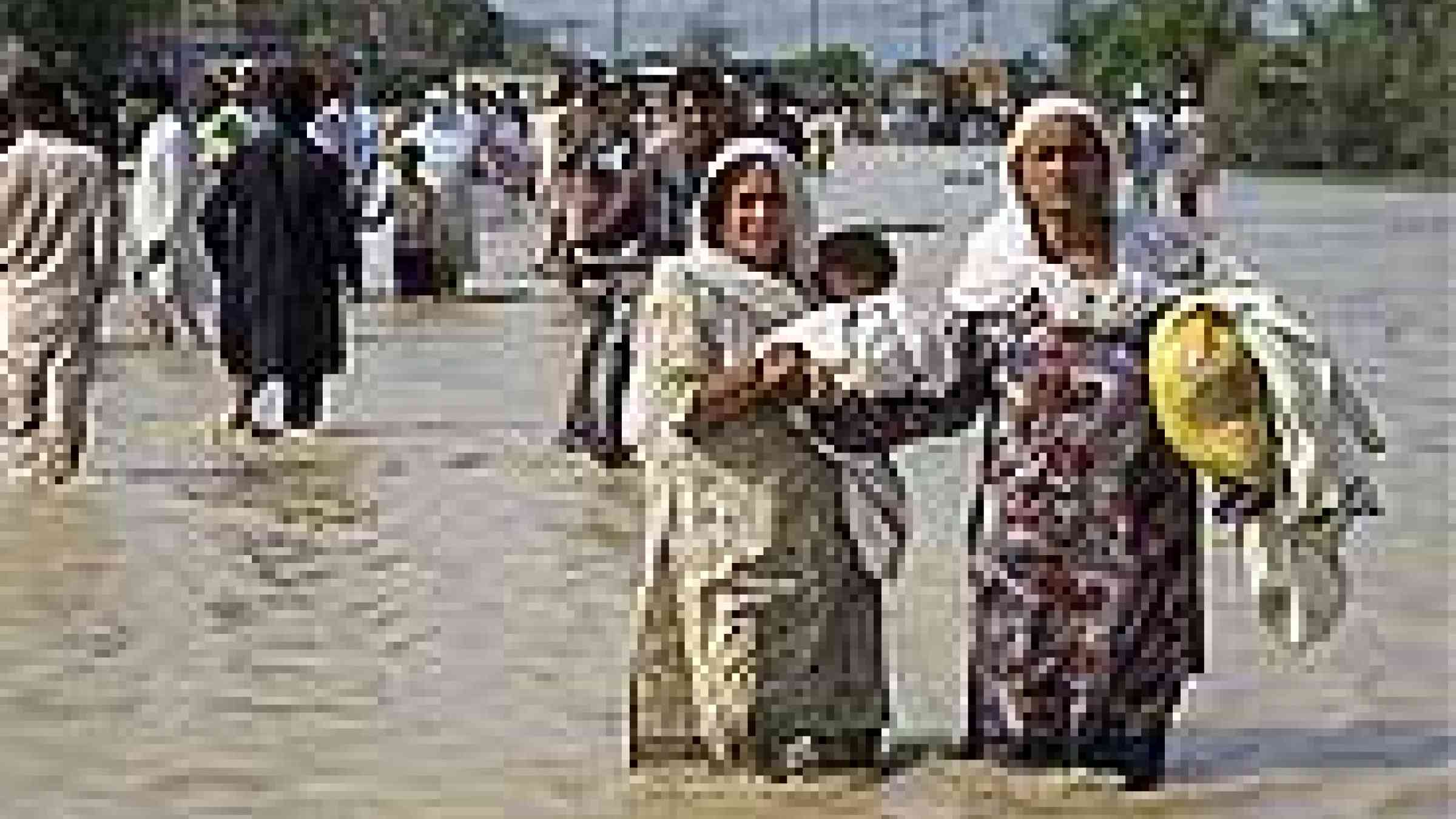Please help us improve PreventionWeb by taking this brief survey. Your input will allow us to better serve the needs of the DRR community.
New report on Pakistan floods urges preventive steps to protect millions from climate displacement

Photo copyright Flickr user, Oxfam NZ
Washington, DC - Refugees International issued a ground breaking report today on the unprecedented floods in Pakistan entitled Confronting Climate Displacement: Learning from Pakistan’s Floods. This report examines the humanitarian response to Pakistan’s floods and outlines steps for the United States and international agencies to address the threat that climate change poses to economic, political and human security in Pakistan and other vulnerable countries.
“The massive flooding in Pakistan is a wake-up call that starkly highlights the real threats we face from climate-related disasters,” said Michel Gabaudan, president of Refugees International. “We agree with scientists who predict that climate change is going to bring more disasters of this magnitude. Given the high costs of responding to these catastrophic events, it is in our best interest to plan now for the massive human displacement they cause and protect those most at risk.”
In July 2010, flood waters submerged one-fifth of Pakistan, an area the size of the state of Louisiana, and affected more than 20 million people. Seven million people lost their homes. Many experts believe that climate change fueled the weather systems that led to the unprecedented rain and flooding. It is estimated that by 2050, as many as 200 million people will be displaced by natural disasters and climate change around the world. The world’s poorest and most crisis-prone countries will be disproportionately affected due to their exposure to natural hazards and pre-existing economic, social and political vulnerabilities. This includes countries that are vital to regional stability, including Afghanistan, Burma, Somalia, Sudan and Yemen.
Confronting Climate Displacement notes that the humanitarian community generally has less opportunity to mobilize resources for natural disasters that strike with little warning than for emergencies brought on by conflicts. In addition, the physical destruction and human impacts that result from natural disasters is often on a far larger scale. For this reason, the report calls on the United States to analyze how its assistance to Pakistan and neighboring Afghanistan will address climate vulnerability. The United States should also work with local governments and civil society to strengthen their ability to adapt to climate change. For the UN, Refugees International is urging agencies to map at-risk areas and potential disaster scenarios in climate-vulnerable countries such as Pakistan, and ensure that the staff responsible for coordinating aid activities are properly trained and can work independently.
“The floods in Pakistan provide an opportunity to draw lessons and address some of the underlying factors that rendered so many people vulnerable to begin with,” said Alice Thomas, co-author of the report and Climate Displacement Program Manager for Refugees International. “With some foresight and critical thinking, we can implement effective programs to prevent long-term displacement and get people back on their feet more quickly after a disaster occurs.”
Confronting Climate Displacement also describes how most people were displaced by Pakistan's floods for only a short period of time. The humanitarian community failed to anticipate this and has been woefully slow with early recovery efforts that help people rebuild their communities. In natural disasters, people tend to be displaced for shorter periods of time. Therefore, programs that rebuild homes and restore livelihoods must be established quickly and emergency relief assistance must be available both in camps and in home communities. The UN and donor governments should be sure that these programs reach all vulnerable people and that reconstruction dollars do not solely favor landowners.
“The failure to address the threat of climate displacement could undermine the long-term stability of countries likely to experience increased floods, storms, droughts and other disasters,” concluded Gabaudan. “Taking preventive steps now will strengthen these countries and provide support to the world’s poorest people.”
Explore further
Please note: Content is displayed as last posted by a PreventionWeb community member or editor. The views expressed therein are not necessarily those of UNDRR, PreventionWeb, or its sponsors. See our terms of use
Is this page useful?
Yes No Report an issue on this pageThank you. If you have 2 minutes, we would benefit from additional feedback (link opens in a new window).